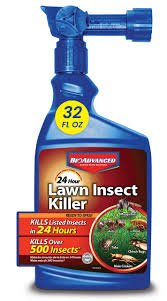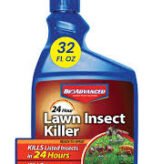Introduction
A lush, green lawn is every homeowner’s dream—but pests like grubs, chinch bugs, and armyworms can quickly turn that dream into a nightmare. Instead of reaching for synthetic chemicals, which can harm pollinators, soil health, and waterways, more homeowners are turning to organic lawn pest control. This eco-friendly approach uses natural products and cultural practices to protect your lawn while supporting a thriving ecosystem.
Understanding Common Lawn Pests
Grubs: The Root Destroyers
Signs: Wilted grass, spongy turf, and animal digging.
Best Timing: Mid-to-late summer during larval stages.
Suggested Image: White grub larvae close-up.
Alt Text: “Grub larvae causing damage – organic lawn pest control solution.”
Armyworms: Rapid Defoliators
Signs: Circular bare patches, night feeding damage.
Best Timing: Early detection in spring and summer.
Suggested Image: Armyworm caterpillar eating grass.
Alt Text: “Armyworm infestation in lawn controlled with organic methods.”
Chinch Bugs: Sap-Sucking Invaders
Signs: Yellow/brown patches in sunny, dry areas.
Best Timing: Peak damage mid-to-late summer.
Suggested Image: Chinch bug close-up in grass.
Alt Text: “Chinch bug lawn damage treated with organic pest control.”
(…repeat with shorter summaries for sod webworms, cutworms, billbugs, and mites…)
Organic vs. Synthetic Pest Control
What Makes Organic Different?
Unlike synthetic pesticides, organic options use naturally occurring substances such as neem oil, spinosad, diatomaceous earth, and Bacillus thuringiensis (Bt). While not chemical-free, they break down quickly in the environment, reducing risks to waterways and beneficial insects.
👉 For a deeper dive into soil-friendly practices, see our organic composting guide.
Effective Organic Pest Control Options
- Neem Oil: Disrupts pest reproduction while sparing pollinators when applied correctly.
- Diatomaceous Earth: Safe, abrasive powder that dehydrates crawling insects.
- Spinosad: Fermentation-based insecticide for caterpillars, thrips, and beetles.
- Bt (Bacillus thuringiensis): Targets larvae of moths, beetles, and mosquitoes.
- Sulfur: Controls fungal issues and mites naturally.
Suggested Image: Bottle of neem oil spray in garden.
Alt Text: “Neem oil used for organic lawn pest control.”
Integrated Pest Management (IPM): The Holistic Solution
Instead of relying only on sprays, IPM combines prevention, monitoring, and targeted treatments:
- Biological Control: Beneficial nematodes and ladybugs.
- Cultural Control: Proper mowing, irrigation, and dethatching.
- Chemical (last resort): Use selective organic products sparingly.
👉 Learn more about strengthening soil health in our lawn aeration guide.
Safe DIY Application of Organic Pesticides
- Always read labels carefully.
- Wear protective gear (gloves, mask, long sleeves).
- Avoid spraying before rain or in windy conditions.
- Sweep granules off driveways to prevent runoff.
⚠️ Warning: Homemade recipes (like vinegar or soap sprays) may damage plants and kill beneficial insects. Stick to tested, registered organic products.
Conclusion
Adopting organic lawn pest control helps you maintain a healthy, green lawn without harming the environment. By combining natural pest control products, IPM strategies, and strong cultural practices, your lawn can thrive sustainably while supporting pollinators, soil microbes, and biodiversity.
If infestations persist, consult a local organic lawn care professional for expert support.
https://pesteraser.in/



